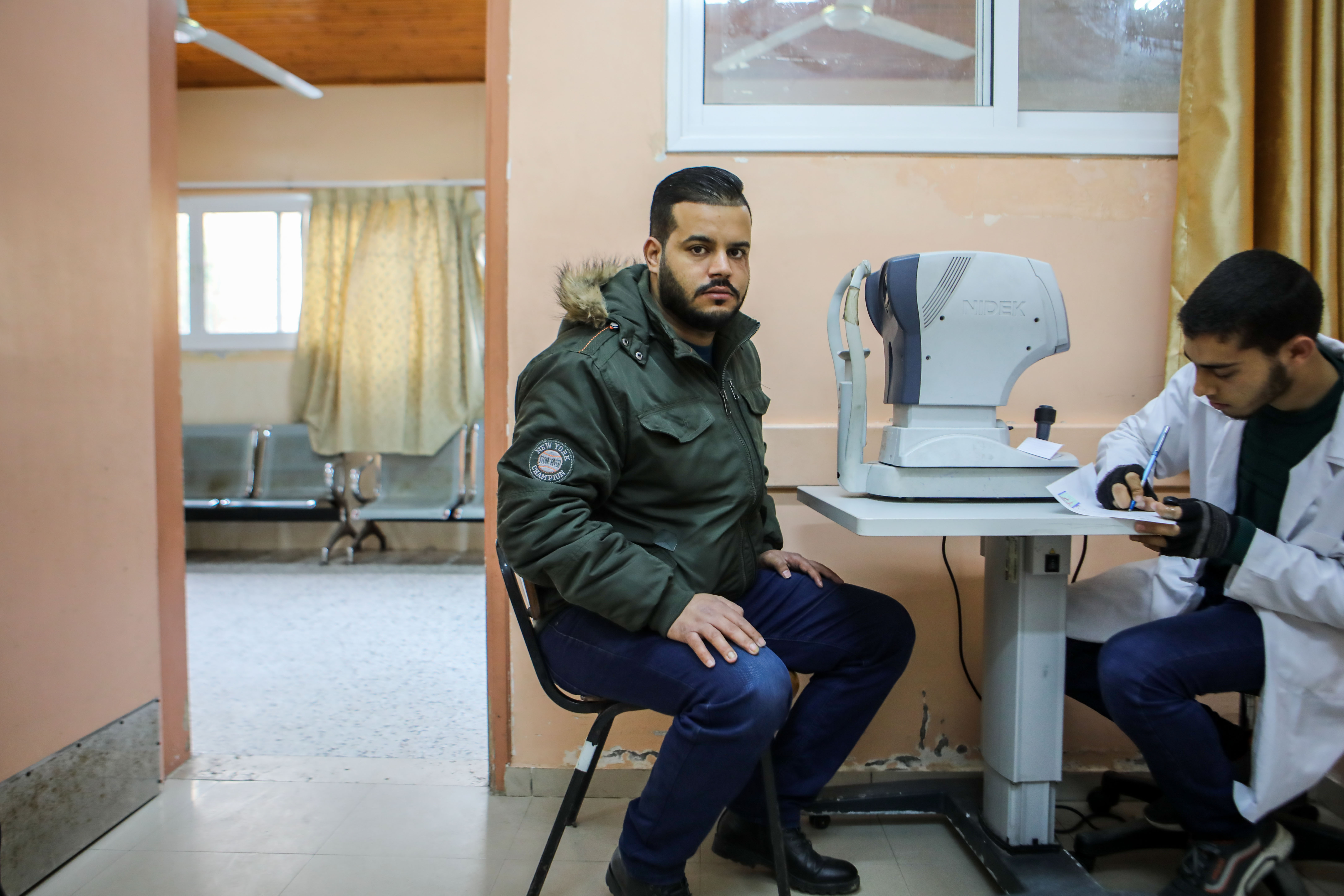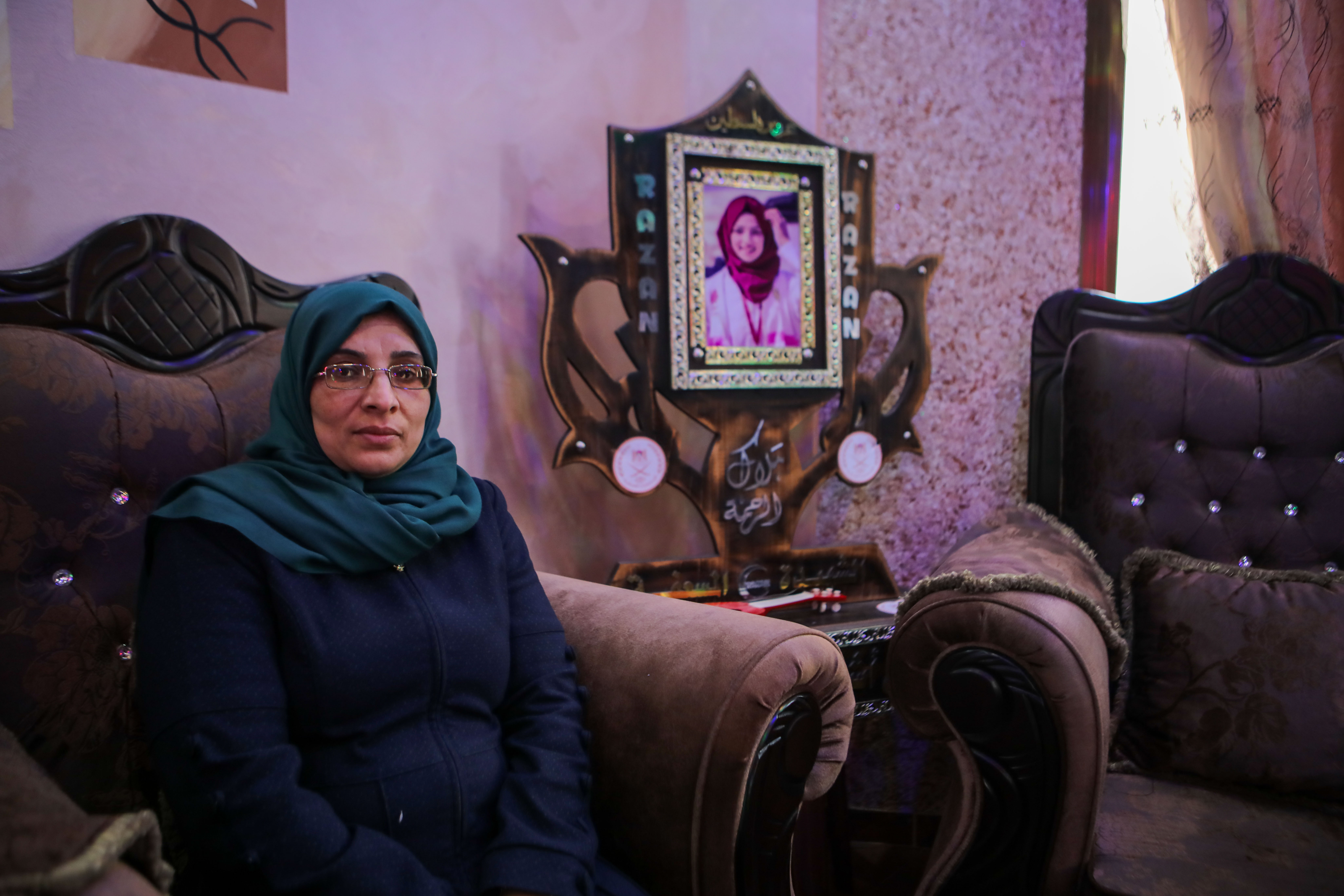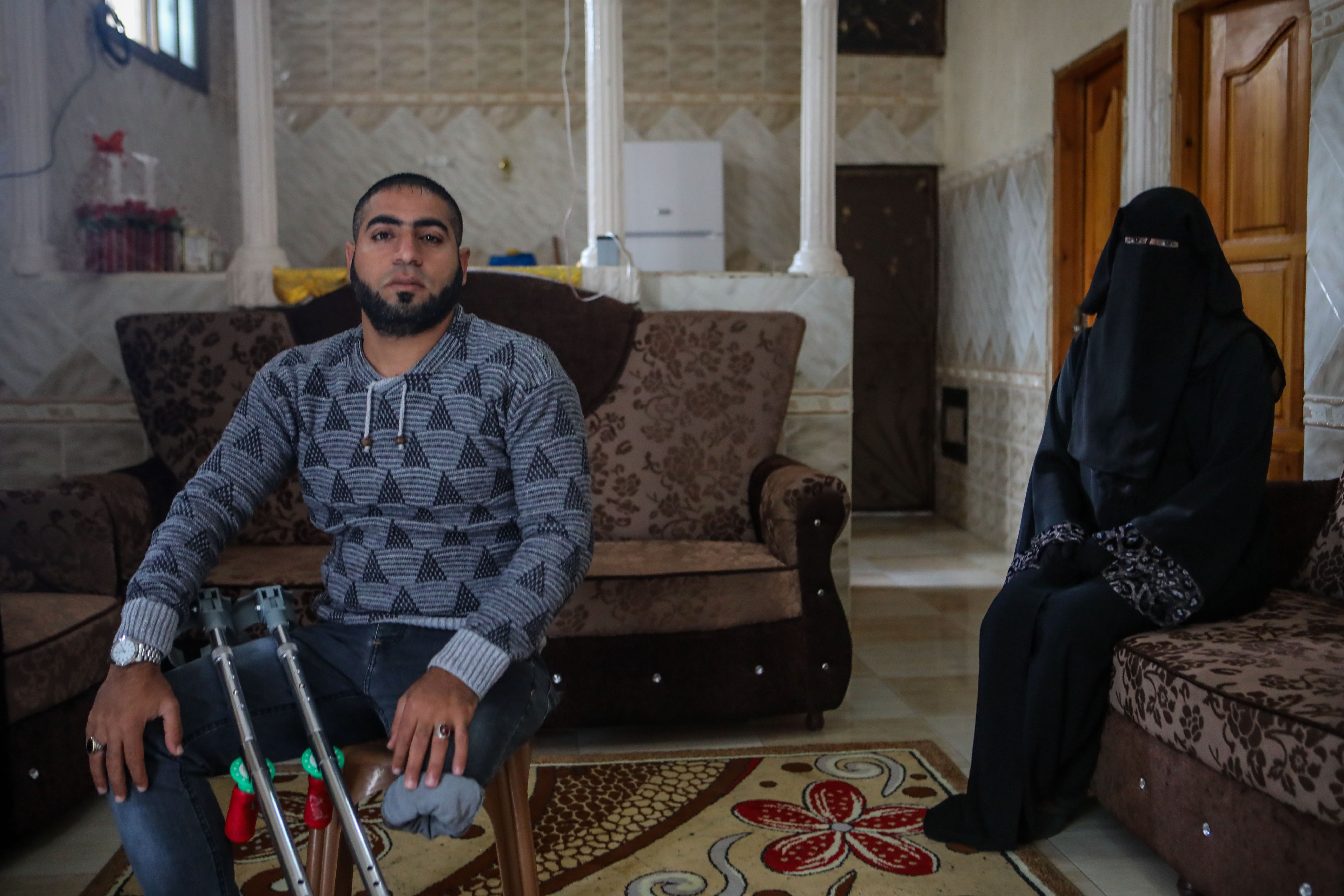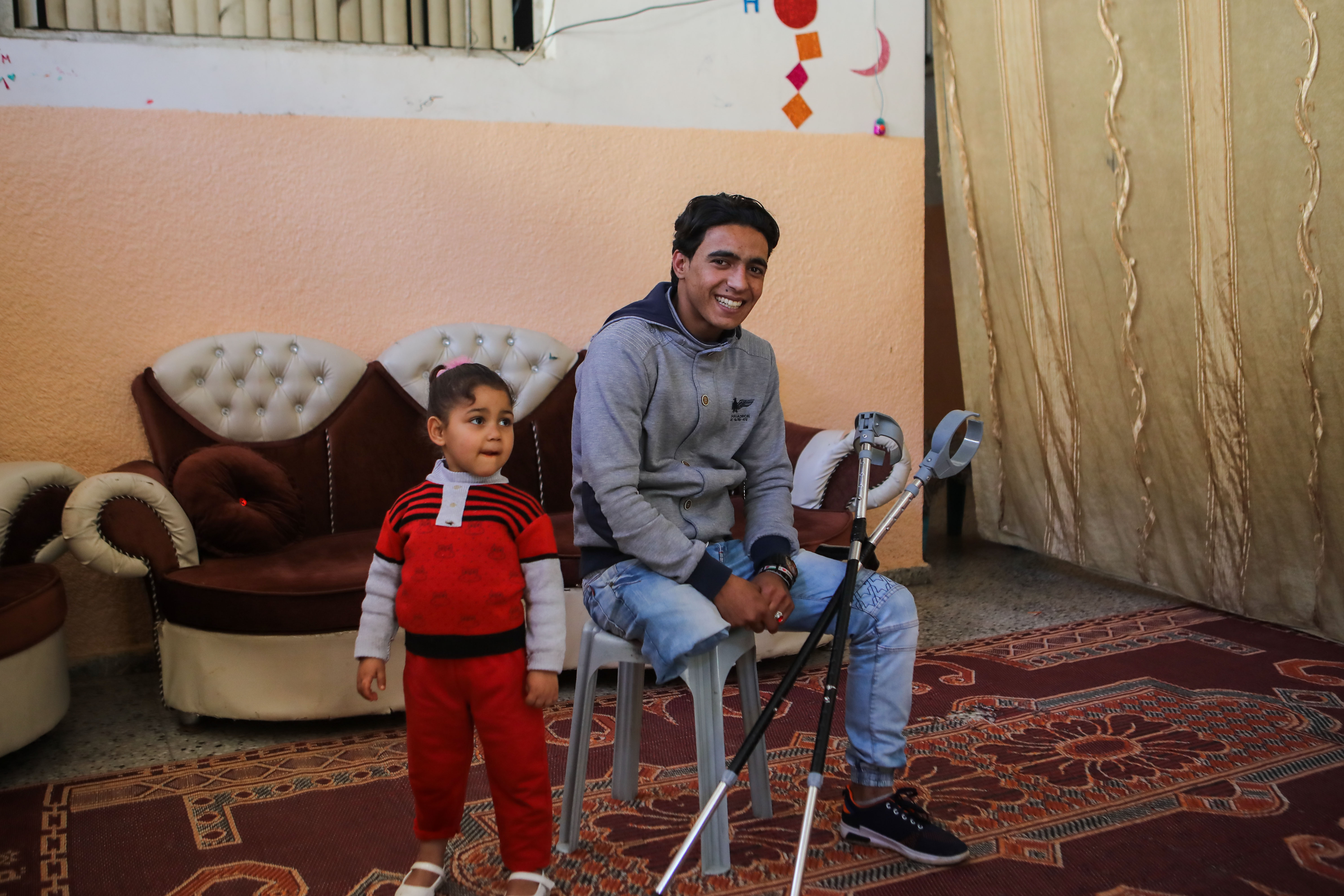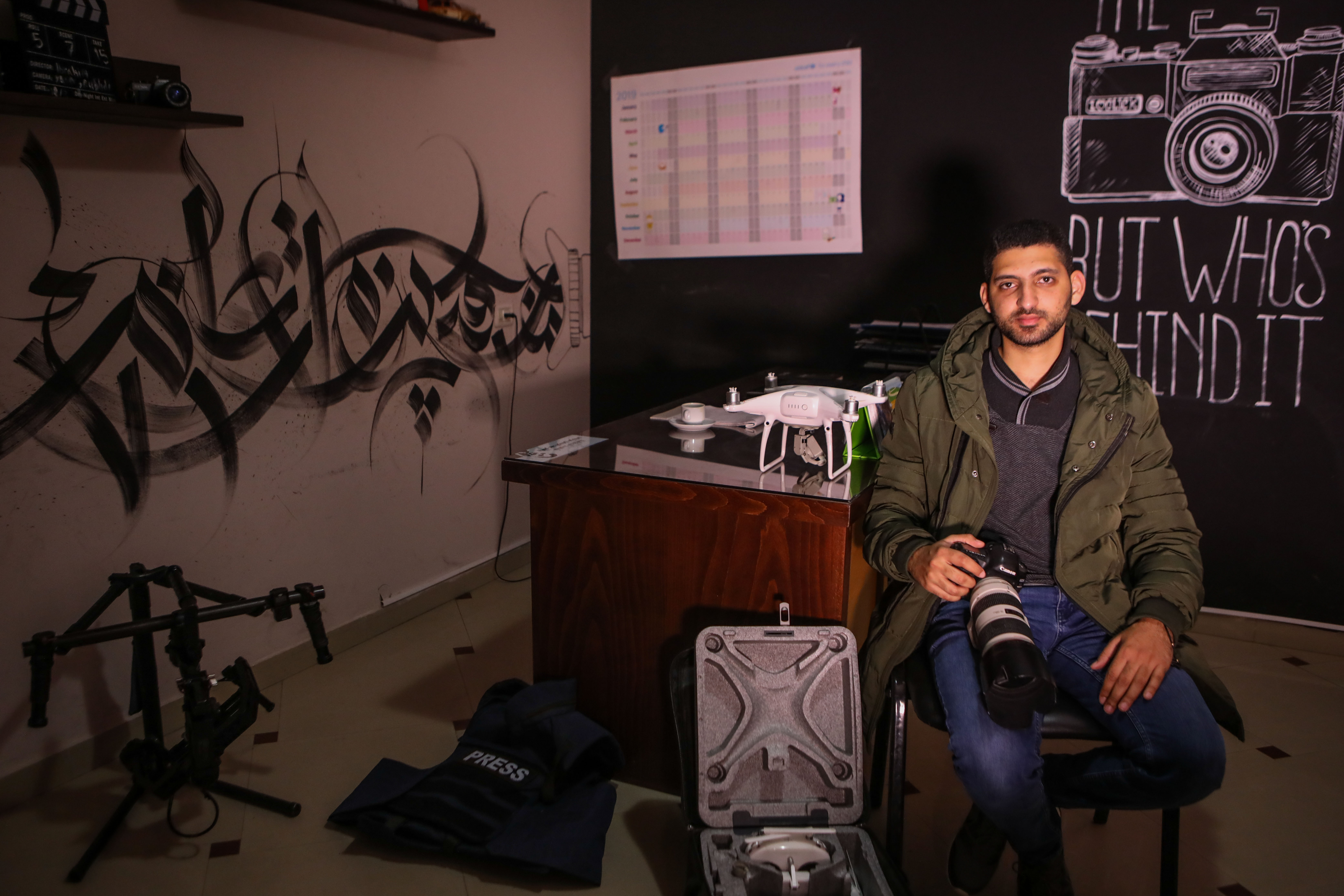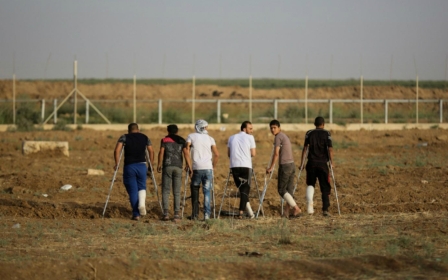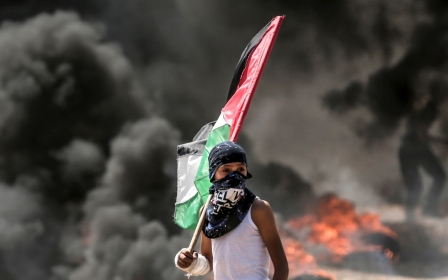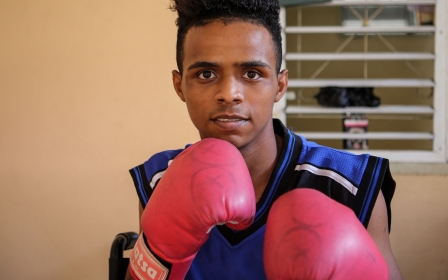In pictures: How the Great March of Return changed five lives
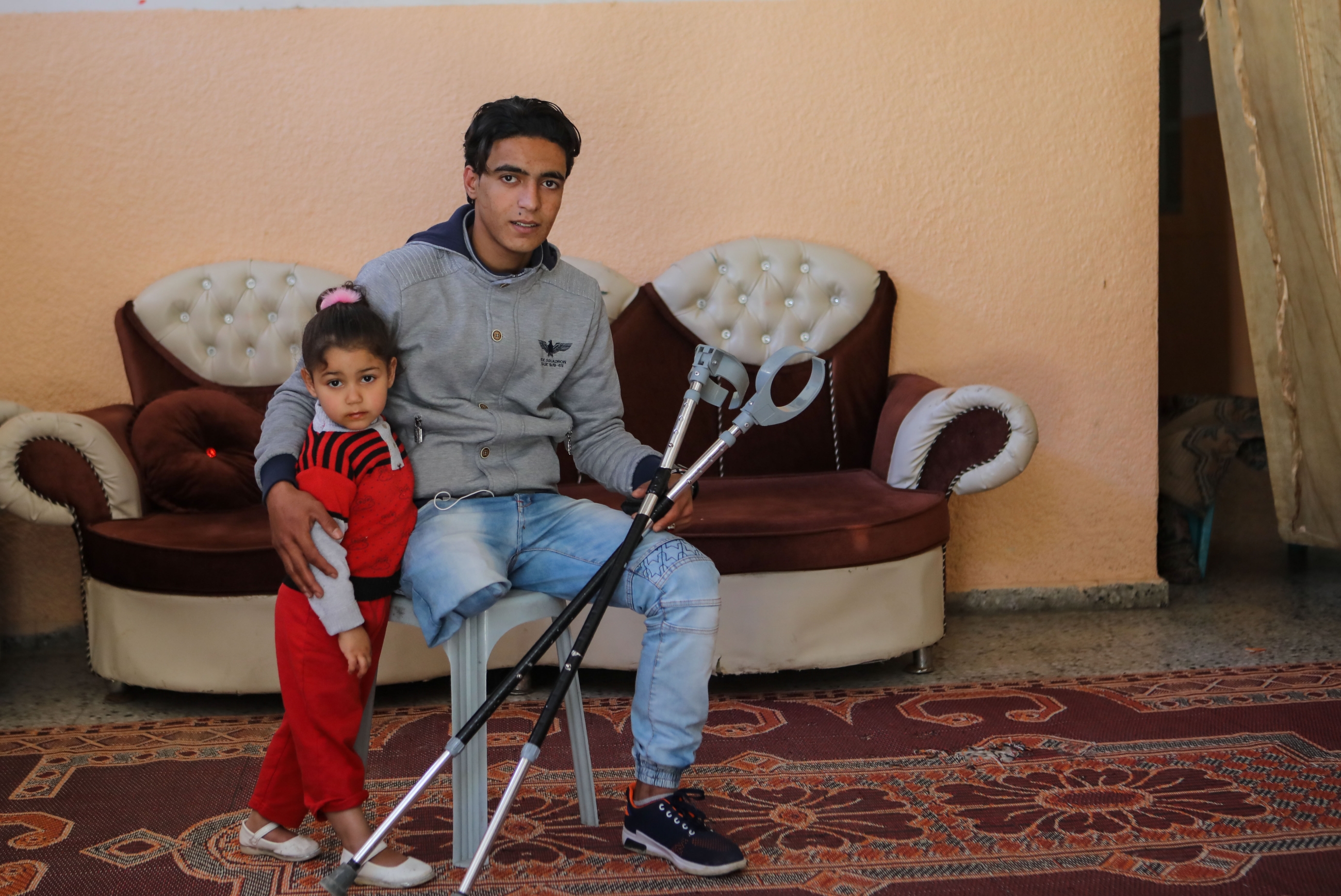
It has been a year since the start of the Great March of Return, a protest movement across Gaza's five governorates. Palestinians have demanded freedom, the breaking of Israel's siege on the enclave and the right of return to land occupied in 1948.
More than 200 have been killed and tens of thousands have been wounded. Some have lost their parents, siblings and friends. Others are haunted by painful memories. At least 136 no longer have all of their limbs.
Here are five of their stories.
Atiyya Darwish, 31: 'I would return to the field to photograph, even back where I was wounded'
New MEE newsletter: Jerusalem Dispatch
Sign up to get the latest insights and analysis on Israel-Palestine, alongside Turkey Unpacked and other MEE newsletters
For Atiyya Darwish, the Great March of Return provided an opportunity to develop his photography.
The 31-year-old covered the protests every Friday, documenting its evolution, and winning prizes for his images. "I met new colleagues and I became well-known," he tells Middle East Eye.
That was until his face was hit by a gas bomb during a protest last December. The bones underneath his left eye were fractured, and he lost the majority of his sight in that eye.
"My photos are missed as a result of my injury. I don't regret that, but I feel a deep sadness after having covered the events every Friday. That became my routine. Now I can't use my camera," he said.
As he waits to see if his injury will heal and his sight will return to normal, Atiyya says he is eager to return to the march to capture the action.
"If I recovered completely, I would return back to the field to photograph, even to the place where I was wounded," he says.
"We in Gaza are always subjected to danger, even in our homes."
Sabrine al-Najjar, 45: 'I didn't surrender. I became stronger'
Nearly a year after her daughter was killed by an Israeli sniper, Sabrine al-Najjar says she is stronger than ever before.
On 1 June, volunteer paramedic Razan al-Najjar was shot after treating a man who had been struck by a tear gas canister less than 100 metres from the boundary fence.
"She was my first baby. She was loved and popular in the area, and she had a strong and playful personality," says Sabrine.
"The Israeli occupation tried to undermine my determination. But I didn't surrender. I became stronger. The case of my daughter is the case of Palestine. I became a supporter of Palestinian women in a peaceful way, although I am faced with aggression and violence."
In the months following Razan's killing, 45-year-old Sabrine and her husband, Ashraf al-Najjar, have travelled to European cities, showing videos and photos of Razan and talking to audiences in university lecture halls about Israeli violations against Palestinians.
The couple also met with a committee at the International Criminal Court in the hope that they will investigate their daughter's killing.
Sabrine has become an activist with the Boycott, Divestment and Sanctions (BDS) movement and has even followed in her child's footsteps as a medic.
"She gave me the strength to continue participating in the march. Since her martyrdom until this moment, I have been volunteering as a paramedic in the March of Return," she says.
"After getting intensive paramedic courses, I have been devoted to going out to the march east of Khuzaa every Friday. Razan's noble goal will not die."
Mohammed al-Akhras, 30: 'My life is upside down'
Mohammed al-Akhras's hard times started when he was 19. He was hunting for birds one day along Rafah's eastern borders when Israeli forces arrested him, accusing him of being involved with armed Palestinian factions. For six years, he was detained in Israeli prisons where he says he was tortured among other ill-treatment.
It was the pain and memories of his arrest and detention, he says, that drove him to join the Great March of Return protests. He was at one of the demonstrations on 18 May when an Israeli sniper shot him twice in his left leg.
Doctors wanted him to travel quickly to Jordan for surgery, but he was forbidden from using the Israeli-controlled Erez crossing because he was a former prisoner. Instead, he was forced to wait until mid-July, when his left leg was amputated in an Egyptian hospital. He is still waiting for a prosthetic leg and uses crutches now to move around.
A month later, he married 23-year-old Haneen al-Qutati, after she decided she was willing to support the former iron worker. She is in her last semester of nursing school in Rafah and has been buying his medicine since the Palestinian Authority stopped sending him a salary for his injury two months ago. They are expecting their first child in May.
"My life is upside down because I can't move like I did before. My wife helps me with my domestic needs. She feels angry when people pity me," he says.
"I wasn't interested in her work as a nurse before the amputation of my leg, but after the circumstances imposed on me, I hope that she will finish her studies and work as a nurse to help support the family."
Qutati, he says, wants him to rise above his injury and "be a normal man," presumably avoiding the risk of getting shot again at another demonstration. But Akhras says this hasn't stopped him from continuing to protest.
"I hope our demands will be met after a year of the March of Return. I and many other people have made sacrifices for the sake of our freedom," he said.
Haitham Nasr, 20: 'I've fallen down many times'
At 20 years old, Haitham Nasr was the breadwinner of his 10-member family, working construction and cleaning jobs in Rafah after his father lost his job.
On 31 March 2018, the first day of the Great March of Return, he was protesting when his right leg was hit with an explosive bullet which ripped through tissue and bone. He was unable to receive the treatment he needed in West Bank or Israeli hospitals after Israeli authorities refused to grant him an exit permit four times, and his leg was amputated.
The adjustment to life without most of his right leg has been difficult and, he says, left him considering suicide. Evenings are particularly hard.
"Before the March of Return, I was working and I had demands to improve the condition of my family, as any family in Gaza does," he says.
"But I don't work now. I've fallen down many times while bathing. I stand up again.
"I always ask myself what I did, how can I continue my life like this, why me? In a year of the March of Return, what did we reap? What will I do with myself?"
Haitham says he found a prosthetic leg, but at $5,000, it is too much for his family to afford.
"Recently, I have started thinking of going back to school after leaving eight years ago. Maybe it can help me find my hope in life again," he says.
Rushdi al-Saraj, 26: 'We feel as if he was with us. It's a wonderful and painful feeling'
Rushdi al-Saraj and Yasser Murtaja used to spend 10 hours a day together.
They had set up their own media and production company in 2012 – Eyn Media – and had produced everything from documentary films to commercials, hiring 15 staff members who were using the most state-of-the-art equipment.
"My soul and Yasser's soul were put into all of our work," says Rushdi, sitting on a couch where he and Yasser used to bounce ideas off each other.
On 6 April, Yasser was killed while filming protests. For two weeks, Rushdi and the rest of the team stopped working, but then returned back to the field, compelled to carry on Yasser's work.
"We insisted on keeping on after his death. We decided to focus on media production that is free of politics. However, we are motivated to continue in Yasser's path a year after his death. We still breathe and carry on the message that he died for," he says.
Rushdi says he has been challenged by what he's observed over the past year. It was the first time that he saw entire families going out to march.
"The start of the march revived the Palestinian cause," he says. "However, after a year, the march has become fruitless and exhausting for the Palestinian people. Our demands haven't been met and this has made me depressed, particularly since I lost my best friend."
Yasser, he says, left a large network of acquaintances and professional connections that regularly remind Rushdi of his friend.
"Wherever we - the company crew - go, people talked about him, and we feel as if he were with us. It's a wonderful and painful feeling."
Middle East Eye delivers independent and unrivalled coverage and analysis of the Middle East, North Africa and beyond. To learn more about republishing this content and the associated fees, please fill out this form. More about MEE can be found here.


